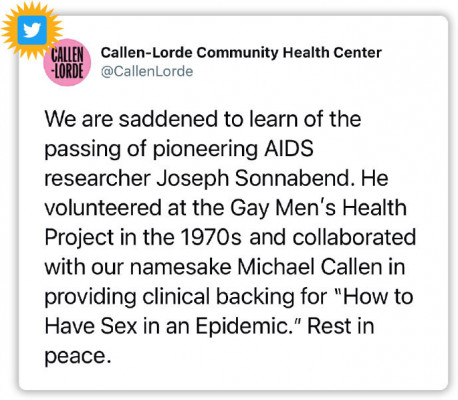As a researcher and clinician, Joseph Sonnabend, MD (1933–2021), was a trailblazer in the fight against HIV/AIDS. Indeed, he has been hailed by some as “the first AIDS doctor,” a title the humble Sonnabend, who died in London of complications from a heart attack, likely would have shunned.
Born in Johannesburg, he grew up in Zimbabwe, attended college in South Africa and studied medicine in Edinburgh, where he trained in infectious diseases. After working with investigators in London who discovered interferons, he moved to New York City in 1969 to continue his research. In 1978, he opened a private practice in Greenwich Village, catering primarily to men who, like him, were gay.
It was from this vantage point that Sonnabend became one of the first physicians to recognize the emergence of AIDS in the early 1980s. At a time when gay men were treated as outcasts, he worked late hours and made house calls to ensure that his patients received the compassionate care they deserved. He would go on to cofound the AIDS Medical Foundation (now amfAR) in 1983; he also cofounded the Community Research Initiative (now ACRIA), which pioneered community-based research. Sonnabend was a maverick in other ways too, cautioning against the use of the early, toxic AIDS drug AZT, promoting prophylaxis for opportunistic infections and helping author the first safer-sex manual for gay men.
His impressive résumé aside, Sonnabend will best be remembered for treating people with dignity at their most vulnerable, nurturing hope during fearsome times and preparing countless former patients to become today’s fighters and survivors.













Comments
Comments